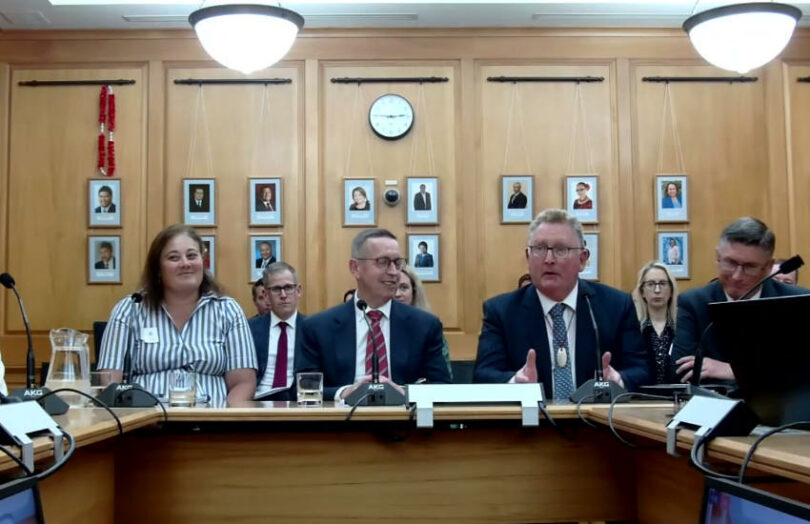During a parliamentary committee hearing, Adrian Orr, Governor of the Reserve Bank of New Zealand made a joke.
“It’s a great business to be in central banking. You print money and people believe it. Touch wood,” said Orr. The Committee laughed.
During the hearing he also touched on cryptocurrency and stablecoins. As a result, the hearing attracted more attention than usual.
The Bitcoin community has jumped on the statement, interpreting it as central banks viewing citizens as fools. However, that has always been a driver for hardcore Bitcoin fans, so that is not such a big deal.
The joke is both amusing and dangerous because of an element of truth. It’s about trust. And also respect. If you lose that trust or give the perception of a lack of respect, the foundations can crumble quickly.
The Gerald Ratner parallel
In the 1980s a famous UK entrepreneur, Gerald Ratner, built the world’s largest jewelry retailer, Ratners.
It had 1,500 stores in the UK and another 1,000 in the United States. Ratners was making profits of £125 million a year but was rather down market, specializing in cheap jewelry. Everyone knew that.
And then, in 1991, Ratner made a joke.
At a business conference, he described some sherry decanters sold by Ratners as “total crap”. He followed it up by referring to a set of earrings as “cheaper than a prawn sandwich from Marks and Spencer’s, but I have to say the sandwich will probably last longer than the earrings.”
People didn’t buy low-priced jewelry from Ratners expecting it to last. His joke had an element of truth to it. However, it also implied a lack of respect for his customers.
Within six months Ratner’s stock price went from £4.50 to a few pennies. And founder Gerald Ratner was out and broke.
The lesson is not everyone has a sense of humor. And be careful if your joke is viewed as an insult. What is a central bank without credibility?
There’s one important difference between Ratners and a central bank. Ratners had more competition. That said, there are cryptocurrencies and stablecoins. And foreign fiat currencies.
On the topic of crypto and stablecoins, below is an excerpt of a related question and answer during the hearing.
Cryptocurrencies and stablecoins
Question from Member of Parliament Stuart Smith:
“Are central banks around the world at all worried about independent digital currencies versus central bank fiat currencies? And the potential to move away from the US dollar which runs all the major commodities which are priced in US dollars. What sort of impact that would have on the international financial system.”
Governor Orr answered the crypto element:
“The answer is yes, critically concerned. Mostly in that what is advertised on the tin is not in the tin for these purported alternatives to central bank cash. There’s concepts such as Bitcoin. It’s neither a means of exchange, it’s not a store of value and it’s not a unit of account. Yet people try to use it as that. It’s got other purposes but it’s not at all a substitute for, nor even a complement to, central bank money, fiat currency.”
“Likewise, stablecoins are the biggest misnomers such as a hedge fund. Oxymorons. Stablecoins are not stable. They’re only as good as the balance sheet of the person offering that stablecoin. And only as good as that person’s willingness through time to see that stablecoin (as) good. Fiat currencies such as the New Zealand dollar, because it’s got the legislation, power of parliament, (and) ability to tax. And through time, intergenerationally, there is the balance sheet support behind it. And a credible institution such as an independent central bank to maintain low and stable inflation.”
“Those other coins – the offer forms of supposed alternatives to cash- are not. And that is the big regulatory push.”
“The UK is going very hard at the moment on all sorts of laws and regulations. It’s very difficult.”
“The number one thing we can do is be as transparent and blunt as we can. A speculative coin is not a currency. It is not central bank cash.”
Professor Neil Quigley, the central bank’s Board Chair, fielded the US dollar aspect:
“There are peculiar features of the US regime which allow it (the dollar) to be the international reserve currency. Availability, the credibility of the American monetary authorities. That could change over time. But those things tend to change only slowly. And in the 20th century we just had really the transition from sterling to the US dollar. So we don’t expect rapid changes in those sorts of things.”






